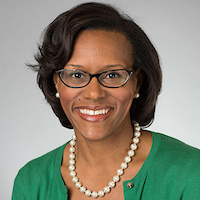
Inequities in outcomes in obstetrics and gynecology have been well-documented but persist despite advancements in care. These inequities are recognized as multifactorial public health crises rooted in policies and practices that have historically created differences in health outcomes. One solution posed is to educate physicians on practices that emphasize fairness and respect for all people to improve cultural humility and structural competence.
Authors

Beverly Gray, MD
Associate Professor
Residency Program Director
Division Director, Women’s Community and Population Health
Duke University Medical Center
Durham, North Carolina

Melody Baldwin, MD, MPH
Associate Clerkship Director
Assistant Professor
Duke University Medical Center
Durham, North Carolina

Sarahn M. Wheeler, MD, MHSc
Vice Chair of Equity, Diversity and Inclusion
Duke Department of Obstetrics and Gynecology
Duke University Medical Center
Durham, North Carolina

Brownsyne Tucker Edmonds, MD, MPH, MS
Associate Professor of Obstetrics and Gynecology
VP, Chief Health Equity Officer
Indiana University Health
Associate Dean for Health Equity
Indiana University School of Medicine
Indianapolis, Indiana

Camille A. Clare, MD, MPH, CPE
Chair, Department of Obstetrics and Gynecology
Tenured Professor
College of Medicine and Professor of Health Policy and Management
School of Public Health
Downstate Health Sciences University
Brooklyn, New York